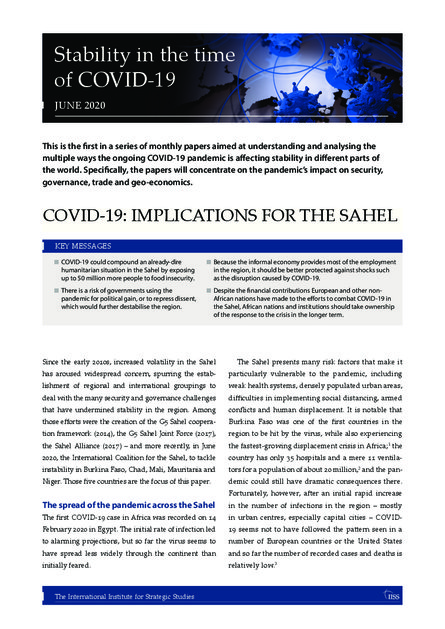
In the first in a series of monthly papers analysing the ways the COVID-19 pandemic is affecting stability in different parts of the world, this paper analyses the security, humanitarian, political, economic and business implications for the Sahel and the national and multinational responses deployed to contain and mitigate these challenges.
Since the early 2010s, increased volatility in the Sahel has aroused widespread concern, spurring the establishment of regional and international groupings to deal with the many security and governance challenges that have undermined stability in the region. Among those efforts were the creation of the G5 Sahel cooperation framework (2014), the G5 Sahel Joint Force (2017), the Sahel Alliance (2017) – and more recently, in June 2020, the International Coalition for the Sahel, to tackle instability in Burkina Faso, Chad, Mali, Mauritania and Niger. Those five countries are the focus of this paper.